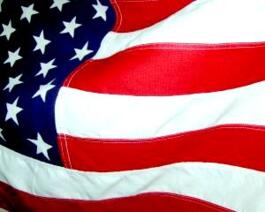Same-Sex Marriage: Garden State’s Highest Court Approves Rights for Gay Couples
The New Jersey Supreme Court made news when it handed down a significant ruling in the ongoing debate over same-sex marriage.

The New Jersey Supreme Court made news when it handed down a significant ruling in the ongoing debate over same-sex marriage.

In the immediate aftermath of 9/11, 57% thought the nation had changed for the better. That number actually grew to 61% by January 2002. Now, half a decade later, just 21% of American adults hold that optimistic view.

Not surprisingly, the Bible Belt region lives up to its name with states like Alabama, Arkansas, Tennessee and West Virginia containing the highest percentage of those who believe the Bible is literally true.

Election 2006 is the first election since the 9/11 terrorist attacks that has not been completely dominated by the War on Terror as a defining issue.

President George W. Bush’s veto last week of legislation that would increase federal funding for embryonic stem cell research marked another milestone in the ongoing debate over the moral and political implications of this emerging field of research.

Look up the word marriage in The American Heritage Dictionary and the first entry reads “the legal union of a man and woman as husband and wife.”

Is it appropriate for gay and lesbian church members to serve as pastors and bishops in a Christian Church? Two thirds (67%) of those who attend Church weekly say no. Just 27% of those faithful worshippers say yes.

Eighty-five percent (85%) of Americans believe that English should be the official language of the United States.

Forty-three percent (43%) of Americans say they generally trust Republicans more than Democrats on national security issues while 38% place more trust in the Democrats. That five point advantage for generic Republicans is fairly modest, but is better than the numbers the President has mustered.

Fifty-seven percent (57%) of American voters have an unfavorable view of France. A Rasmussen Reports survey found that just 25% have a favorable opinion of that nation.

Sixty-eight percent (68%) of American adults believe that Libertarian Party candidate Michael Badnarik should be invited to participate in the Presidential Debates this year.

Half (51%) of the nation's Democrats say it would be best for their party to nominate a more centrist candidate in 2008.

Just 13% of American voters favor re-instatement of a military draft for the United States. A Rasmussen Reports survey found that 72% are opposed to such a step.
Perhaps because the sentiment is so overwhelming, few expect a draft anytime soon--regardless of who wins the Presidential election.
If President Bush wins, 23% of American voters believe we will have a military draft. If Senator Kerry wins, 22% believe there will be a draft. In both cases, 53% say they do not expect a draft.

Initial public reaction to a proposal for reducing the number of American troops in Germany and Korea is very positive.
Fifty-nine percent (59%) of voters favor the plan which would station more American troops in the United States while reducing our presence in nations that dominated the Cold War era. A Rasmussen Reports survey found that 23% oppose the idea.